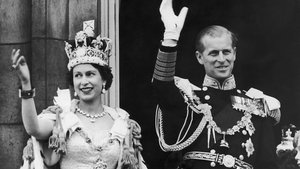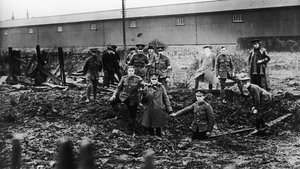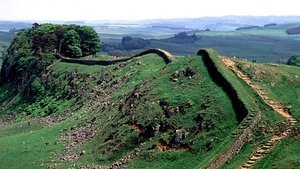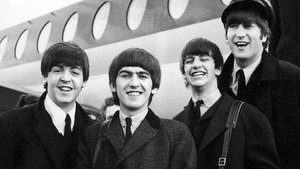
Timewatch celebrates its 25th anniversary with a return to the family that featured in its first programme, the Windsors. The coronation of Queen Elizabeth II on 2 June 1953 was the greatest spectacle ever staged in Britain. Told by the people who watched, shaped, and recorded it, this is a chance to go backstage to celebrate the "People's Coronation". 5/5.
For centuries gladiators have been seen as legendary figures of the ancient world, based largely on speculation. For five years, two forensic anthropologists have been looking at thousands of bones found in a mass grave in Turkey. Their findings prove how gladiators lived, how they fought, and the exact way they died. 4/5.
By 1945 Vichy France had deported 76,000 Jews to Nazi concentration camps. Told in their own words, these are the stories of four children secretly hidden by ordinary French people. Acclaimed director Jonathan Hacker awakes powerful emotions as he accompanies these survivors to the places where they once played a deadly game of hide-and-seek. 3/5.
New evidence from the island of Crete suggests that Europe's first great civilisation, the Minoans, was destroyed by a cataclysmic natural disaster. Was the terrible fate of the Minoans the source of Plato's story of Atlantis? A team of archaeologists and scientists scour Crete for conclusive evidence. 2/5.
September 1970: A BOAC flight with 20 school children on board was hijacked in the name of a Palestinian guerrilla group - the first and last time a British commercial aircraft has ever been hijacked. Interviews from hostages and their hijackers help illustrate events that changed airplane travel for ever. NEW SEASON 1/5.
Almost a quarter of a century ago, 50 British servicemen lost their lives at Fitzroy inlet in the Falkland Islands when two supply ships, Sir Galahad and Sir Tristram, were bombed by Argentinian planes. This one-off Timewatch special details the events that led up to the tragedy and talks to survivors about how this act of war continues to shape so many lives.

Unlikely as it seems now, the first aerial bombardment of Britain was a Zeppelin raid on the unfortunate Norfolk town of Great Yarmouth with one fatality. The next three years saw a terror campaign that would take hundreds of lives and whose psychological effect was arguably as harrowing as the Blitz of the Second World War. 5/6.

A stone barrier 74-miles long, up to 15ft high, and 10ft thick: Hadrian's Wall stood as the Roman Empire's most imposing frontier for 300 years. Almost 2,000 years after it was built, archaeologists have properly excavated less than one per cent of it, but they have unearthed extraordinary findings. Julian Richards journeys back in time to unlock its secrets. 4/6.
A huge volcanic eruption in Iceland in 1783 spewed out poisonous gases that enveloped Europe, killing thousands of Britons. The ensuing winter was one of the worst ever and cost countless more lives. This environmental disaster is well known in Iceland, but its impact on Britain has until now been a mystery. 3/6.

By 1966 the Beatles had played over 1400 gigs and sold 200 million records. At the height of their popularity, the Fab Four decided they would never tour again. Previously unseen archive footage plus interviews with those who accompanied the band on tour tell the inside story of Beatlemania, from death threats and plane crashes to diplomatic wrangles and, ultimately, disillusionment. 2/6.
The fascinating story of how, in February 1945, HMS Venturer hunted down and sank the U-boat U864 - a sub on a deadly secret mission. This documentary uses eyewitness accounts, archive material, and a dive into the Baltic's frozen waters to bring the full story of the boat's last hours to life. 1/6.